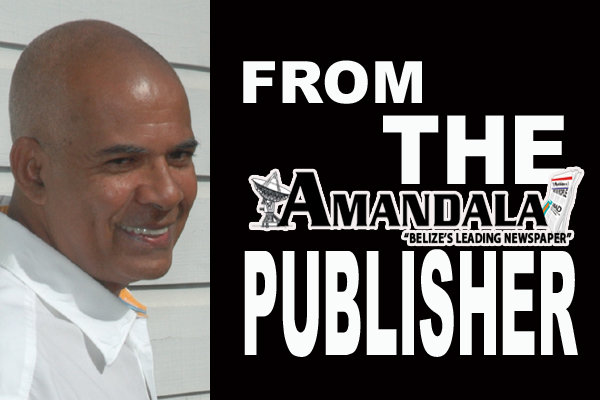The Mexican Constitution of 1917 is the first such document in the world to set out social rights, serving as a model for the Weimar Constitution of 1919 and the Russian Constitution of 1918. Some of the most important provisions are Articles 3, 27, and 123; these display profound changes in Mexican political philosophy that helped frame the political and social backdrop to Mexico in the twentieth century. Article 3 forbids the setting up of a list of prohibited books and establishes the basis for a free, mandatory, and lay education; Article 27 laid the foundation for land reform; and Article 123 was designed to empower the labor sector.
Articles 3, 5, 24, 27, and 130 were anticlerical and, as originally formulated, seriously restricted religious freedoms; attempts to enforce the articles strictly by President Plutarco Calles in 1926 led to the civil war known as the Cristero War.
– WIKIPEDIA on The Mexican Constitution
When United States President John F. Kennedy was murdered by right wing elements in November of 1961 in Dallas, Texas, Vice-President Lyndon B. Johnson assumed the presidency. Business proceeded to go on as usual. But when Mexican President Francisco I. Madero and Vice-President José María Pino Suárez were murdered by Mexican Army elements in February of 1913 in Mexico City, it was a Mexican Army general, Victoriano Huerta, who took over the presidency after a plot which involved the United States Ambassador to Mexico, Henry Lane Wilson. Business did not go on as usual: a bloody civil war broke out in Mexico.
During his presidency, Victoriano Huerta, who is reviled in Mexican history, was supported by the Roman Catholic Church in Mexico. It is primarily for that reason that the Mexican Constitution drawn up in 1917 by the nationalist forces which had forced Huerta into exile in July of 1914, was distinctly anticlerical.
In the Guatemalan civil war which lasted from 1960 to 1996, the Roman Catholic Church in Guatemala supported the Guatemalan military and oligarchy, which has remained in power since the overthrow of President Jacobo Arbenz by Carlos Castillo Armas in 1954 in a CIA-sponsored coup.
Recently we have been reminding you that the United States government continues to consider Guatemala of significantly more importance than Belize in its foreign policy considerations. The same thing applies to the Vatican. In its headquarters in Rome, Italy, the leadership of the Roman Catholic Church has Guatemala higher on its list of priorities than it has Belize. There have to be implications here for the Catholic faithful in Belize.
In his regional address broadcast from Kingston, Jamaica on Sunday, October 18, Nation of Islam Minister Louis Farrakhan cited documented historical reasons why the regional movement for slavery reparations should include the Roman Catholic Church on the list of those who have to pay.
“’When you talk about reparations, you can’t leave the Pope out … There was something in the Catholic Church called the Papal Bulls authorizing slavery, it is a type of letter or patent by the Pope,’ Farrakhan told the ceremony that was also attended by government ministers.
“He said Pope Nicholas V issued a Papal Bull granting Portugal and Spain, ‘full and free permission to invade, search out and capture … all unbelievers and enemies of Christ wherever they may be and reduce their persons into perpetual slavery.’
“Farrakhan said even in today’s world this Papal Bull is being regarded as an endorsement of slavery … so when we are asking for reparation, we can’t leave the Church out.
“’You can’t leave the Pope out, nor can you leave European countries out,’ he added.”
(The four quoted paragraphs above are taken from a Monday, October 20, 2014 CMC article published on page 26 of Amandala, Sunday, October 26, 2014.)
Unconditional endorsements are periodically given by Belize’s elected politicians to a Belizean education system which is dominated by the Roman Catholic Church and the Anglican Church. Belize’s elected politicians are conscious of the power these two religious institutions have over the Belizean voters who decide their fate in elections. Belizean politicians have no choice but to support the so-called church-state education system, even though it is wasteful and inefficient, because religion is more powerful than nationalism in Belize.
This is not the case in Mexico. The republic remains heavily, predominantly Roman Catholic, but when it comes to the core issues of their nation-state, the Mexican people have been setting religion aside ever since the Church supported Victoriano Huerta.
In Belize, the Roman Catholic Church and the Anglican Church agree on all important issues, but in the recent public discourses on homosexuality and gender policy, it appears that the Romans have been more hard line, so to speak, than the Anglicans.
We think you will agree, however, that the most important existential issue for Belizeans is not homosexuality or our gender policy: it is the Guatemalan claim to our territory. We would like for the Roman Catholic hierarchy in Belize to speak out categorically and unequivocally on this matter.
Power to the people. Power in the struggle.

